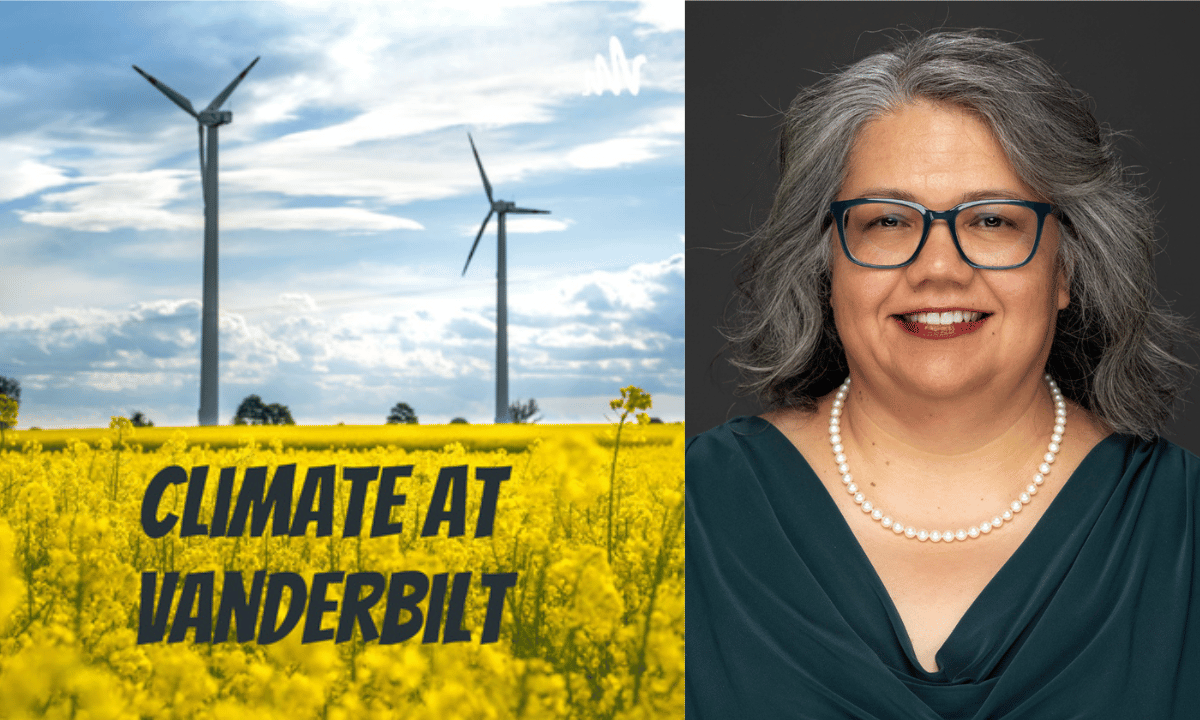 Vanderbilt law professor Jim Rossi helped spearhead the writing and filing of an amicus brief on behalf of a team of 26 energy law scholars in Federal Energy Regulatory Commission v. Electric Power Supply Association, a case regarding the scope of the federal government’s power under the 80-year-old Federal Power Act (FPA).
Vanderbilt law professor Jim Rossi helped spearhead the writing and filing of an amicus brief on behalf of a team of 26 energy law scholars in Federal Energy Regulatory Commission v. Electric Power Supply Association, a case regarding the scope of the federal government’s power under the 80-year-old Federal Power Act (FPA).
The case, argued before the U.S. Supreme Court on Wednesday, Oct. 14, challenges a 2014 D.C. Court of Appeals decision in Electric Power Supply Association v. FERC. That case held that FERC lacked authority to regulate “demand response,” a form of energy efficiency through which large customers that buy wholesale electricity from power plants agree to reduce their energy consumption during periods when the electric grid experiences high demand—such as a 100-degree summer day that increases demand for air-cooling.
“Demand response” gives electricity grid operators a valuable tool for managing the grid during peak use periods, according to Rossi. “When electricity grid operators can manage electricity use at times when there’s a high demand for electric power, that allows for more efficient deployment of energy on the grid—which in turn can lower electricity bills and reduce air pollution,” he explained.
However, electricity grid operators’ valuation of “demand response” could also reduce the profits of individual power plants. In 2012, the Electric Power Supply Association, a trade organization representing power suppliers, brought a lawsuit challenging FERC’s statutory authority to establish nationwide participation in “demand response” markets. In 2014, the D.C. Circuit Court of Appeals agreed, holding that FERC lacked the authority to regulate the valuation of demand response in wholesale power markets.
Rossi’s current research focuses on federalism and other shared jurisdictional issues affecting agency regulation. “Important federalism issues in energy markets are at the core of this case,” he said. “I was motivated to work with colleagues to file an amicus brief in this case because of its significance in defining how we regulate interstate energy markets, if at all.”
In the amicus brief Rossi organized and co-authored with Richard J. Pierce Jr. and Emily Hammond of George Washington University and Joel B. Eisen of the University of Richmond, the energy law scholars argue that the D.C. Circuit’s 2014 ruling in favor of the Electric Power Supply Association “was based on some fundamental misinterpretations of the Federal Power Act and applicable precedents” and should be overturned.
“The Federal Power Act authorizes FERC to remedy practices affecting wholesale electricity rates to ensure such rates are just, reasonable, and nondiscriminatory” Rossi said. “Failure to address demand response in wholesale market creates a potential regulatory gap — a problem the drafters of the statute were specifically aiming to avoid — and the D.C. Circuit opinion also ignored FERC’s reasonable interpretation of its statutory authority.”
According to Rossi, “FERC v. Electric Power Supply presents an opportunity for the Supreme Court to clarify jurisdictional issues that are presenting uncertainty for state regulators as they are establishing incentives to encourage investment in new sources of energy in interstate markets.”
Rossi also emphasizes the importance of the case as renewable power sources such as wind and solar power grow in significance. “This case is of immediate practical significance to greater reliability of the electricity grid. Services such as demand response are playing an increasingly significant role as we retire old fossil fuel and nuclear plants, integrate renewable energy and battery storage into the grid, and make other decisions about new sources of energy supply.”
Rossi joined Vanderbilt’s law faculty in 2012 from the Florida State University College of Law, where he had been the Harry M. Walborsky Professor and associate dean. His recent articles focus on the role of public utility doctrines and principles in modern energy markets, as well as federalism and other shared jurisdictional issues affecting agency regulation. His books include Energy, Economics and the Environment (4th edition, Foundation Press, 2015, with Joel Eisen, Emily Hammond, David Spence, Jacqueline Weaver and Hannah Wiseman); Regulatory Bargaining and Public Law (Cambridge University Press, 2005); and an edited collection of essays, Dual Enforcement of Constitutional Norms: The New Frontier of State Constitutionalism (Oxford University Press, 2010, with James Gardner). Rossi was a consultant to the Administrative Conference of the United States’ Committee on Collaborative Governance project on Improving Coordination of Related Agency Responsibilities, which resulted in a set of recommendations adopted by the conference on how agencies should coordinate.

